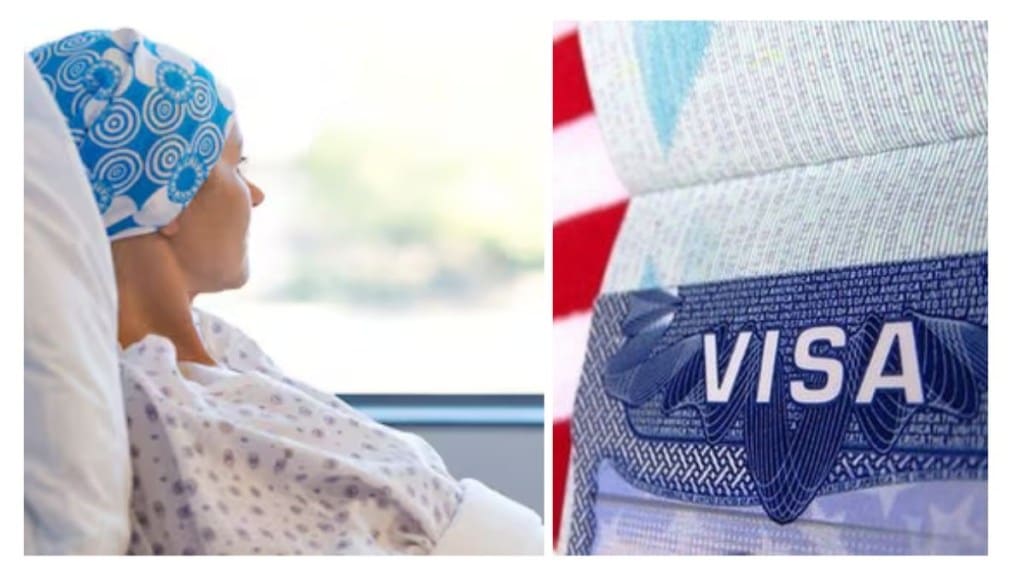A deeply personal immigration case is drawing attention online after a man from India was twice denied a U.S. visa despite a spotless travel record and urgent humanitarian grounds, including his sister’s Stage 4 cancer diagnosis. The man had previously held a 10-year B1/B2 tourist visa issued around 2012–2013 and had visited the United States four times — never overstaying and always returning to India on time.
In 2023, after his sister was diagnosed with Stage 2 lung cancer, he applied to renew his visa to visit her during her treatment. His application initially went through the dropbox process but was flagged for an in-person interview. Despite submitting a doctor’s letter outlining the medical situation, his visa was denied under section 214(b), a clause often used when consular officers suspect a person may not return to their home country.
A second attempt in September 2023, this time backed by a formal letter from a U.S. Congressman and detailed medical records, also resulted in a denial. During the interview, the consular officer questioned the applicant’s 3.5-month stay in 2022 and how he was working during that period. He explained that he runs a property management business in India and only worked remotely for his own company, not for any U.S.-based employer. His clarification did not seem to shift the outcome.
What makes the situation even more urgent is that the sister’s condition has since worsened. In February 2024, her cancer returned and advanced to Stage 4 with metastasis to the liver. She has since received further documentation from institutions such as Stanford and UC Davis supporting her brother’s visit as part of her care and emotional support system. Their elderly parents, who successfully renewed their own U.S. visas in 2023 and are currently staying with her, had previously always traveled with the brother on family visits. The family is now exploring other options, including applying for humanitarian parole or pursuing legal and civic advocacy to make their case. Still, the emotional and logistical toll of the process weighs heavily on them, especially as time becomes a critical factor in her ongoing treatment.
“Remote working killed it”
The Internet swiftly reacted to the post. A user noted, “Unfortunately chances of approval are low IMHO. The remote work from the US is a no no, even if for his own company. Now he is single as well, so the ties to India have grown weaker. It’s very rare for renewals to be flagged like this. But being that this will be the 3rd attempt, chances of success are low. Even medical reasons weren’t enough to convince the visa officers, so no idea what you can do. Really sorry about your cancer by the way, hope you can recover.”
The denials have sparked conversation across immigration and legal forums, with many questioning the basis of the decision given the applicant’s consistent travel history, stable career, and strong humanitarian justification. Some observers suggest that his remote work, though not unlawful, may have triggered concerns about his intent, particularly in the absence of a spouse or children in India. Others point to the discretionary nature of 214(b) denials, which do not require the officer to review documents or provide detailed reasoning.
Another stated, “Remote working killed it. Now that it’s on record, it will be hard I think under same reason (tourism). May be consider applying for a conference or something.”
A netizen added, “So sorry to hear. Working while in the US is not allowed. It doesn’t matter whether you work for yourself or for an employer outside the U.S. If he wants to attempt again, he needs to prove that he won’t work while in the U.S. if he owns his company, show that he hired someone else to do his job while he is on leave. If he works for a company, submit a letter saying he has been granted a leave of absence or his time-off of x amount of time is granted for him to be with his terminally ill sibling. Dr.’s note recommending to gather the family could be helpful. Note that the visa officer can contact the company or the hospital to confirm. ”

